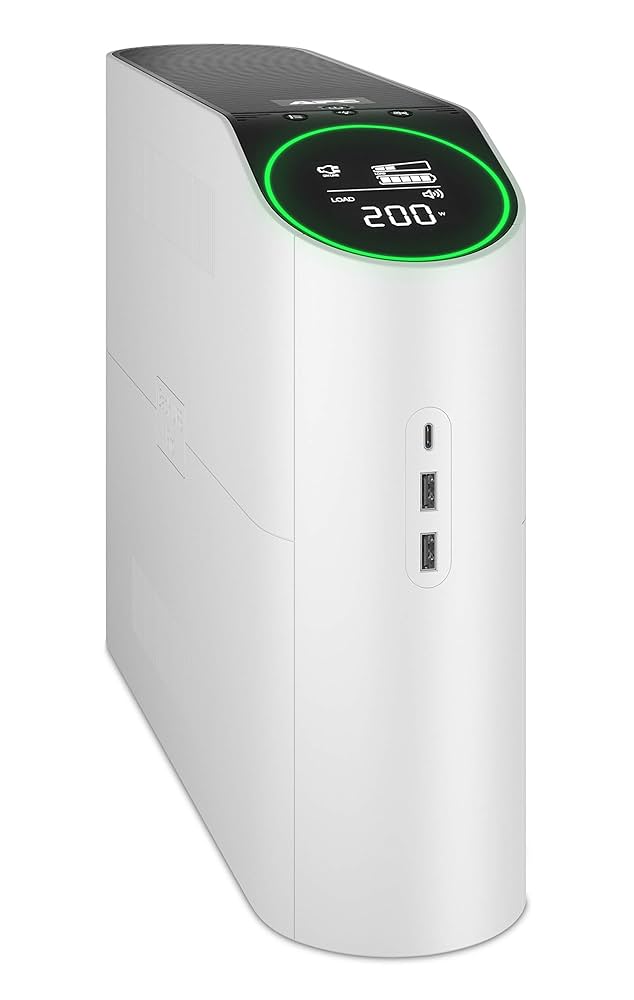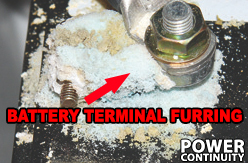Have you ever noticed a burning smell coming from your APC battery backup? If you have, it’s a warning you shouldn’t ignore.
That strange odor could mean your battery is overheating, overcharged, or worse—damaged internally. Ignoring this smell might put your equipment, and even your safety, at risk. You’ll learn what causes that burning scent, how to spot the signs early, and what steps you must take immediately to protect your devices and yourself.
Keep reading to make sure your APC battery backup stays safe and reliable.

Credit: www.amazon.com
Burning Smell Types
Different burning smells from an APC battery backup signal various issues. Recognizing these odors helps identify the problem quickly. Each smell points to a specific cause inside the battery or its wiring. Understanding these burning smell types is crucial for safety and maintenance.
Sulfur Or Rotten Egg Odor
This smell is like rotten eggs and is common with battery problems. It happens when the battery overcharges and releases hydrogen sulfide gas. Internal shorts or a bad alternator can also cause this odor. This smell means the battery is overheating or “boiling.”
Burning Plastic Scent
A burning plastic smell means wires or parts are melting. Loose or corroded connections at the battery or alternator cause high heat. This heat melts plastic insulation and creates this scent. It signals electrical resistance or a wiring fault that needs fixing.
Burning Rubber Aroma
This smell comes from melting rubber, usually from wires or insulation. It can point to a short circuit or damaged wiring near the battery. This odor warns about serious electrical problems. Check wiring carefully to avoid fire hazards or battery failure.
Common Causes
The burning smell from an APC battery backup signals a problem. Identifying the cause helps prevent damage and hazards. Several issues can produce this odor, each requiring attention. Below are common reasons behind the burning smell.
Battery Overcharging
Battery overcharging causes the internal electrolyte to break down. This releases hydrogen sulfide gas, which smells like rotten eggs. Overcharging stresses the battery and may cause swelling or leaks. It often results from faulty chargers or malfunctioning power supplies.
Internal Short Circuits
An internal short circuit happens when the battery’s internal components touch incorrectly. This creates excess heat and can produce a burning smell. Shorts damage the battery cells and reduce battery life. They often occur due to manufacturing defects or physical damage.
Leaking Battery Acid
Leaking acid from the battery causes a strong, pungent odor. Acid leaks can burn nearby wires or plastic parts, creating a burning smell. Leaks happen when the battery casing cracks or seals fail. Acid exposure is dangerous and needs immediate attention.
Faulty Wiring Connections
Loose or corroded wiring connections create high resistance. This resistance generates heat and may melt wire insulation. The result is a burning plastic or rubber smell near the battery. Checking and tightening connections can prevent this issue.
Alternator Issues
A failing alternator can cause the battery to overcharge or wires to overheat. This leads to a burning odor from melted wires or damaged components. Alternator problems often show with dim lights or battery warning signals. Prompt repair helps avoid further damage.
Risks Of Ignoring
Ignoring a burning smell from your APC battery backup can lead to serious problems. This warning sign should not be taken lightly. It indicates that something inside the battery or its connections is wrong. Leaving it unchecked risks damage to your home, health, and devices. Acting quickly can prevent costly repairs and ensure safety.
Fire Hazards
A burning smell often means overheating or short circuits inside the battery. These issues can start a fire. Fires from batteries spread fast and cause severe damage. They also put lives at risk. Ignoring the smell increases the chance of a dangerous fire.
Battery Damage
Heat and burning smells damage the battery’s internal parts. This reduces its lifespan and performance. The battery may stop working completely. Replacing a damaged battery costs more than early repairs. Damage can also affect other connected devices.
Vehicle Electrical Failures
In vehicles, a burning smell can mean wiring or alternator problems. These faults cause electrical failures or breakdowns. Your vehicle may stop working without warning. Ignoring the smell risks being stranded or causing accidents.
Health Concerns From Fumes
Burning batteries release harmful fumes. These gases can irritate your eyes, nose, and throat. Breathing them in for long can cause serious health issues. Children and pets are especially vulnerable. Avoid exposure by addressing the issue immediately.

Credit: www.amazon.sa
Safety Steps To Take
Taking quick and careful safety steps is vital if you detect a burning smell from your APC battery backup. Acting fast helps prevent injury and further damage. Follow these clear steps to protect yourself and your equipment.
Immediate Battery Shutdown
Turn off the APC battery backup right away. Cut power to stop heat build-up or sparks. This step reduces the risk of fire or explosion. Do not try to charge or use the battery until it is checked.
Avoid Direct Contact
Do not touch the battery or any nearby parts. The battery may be hot or leaking harmful chemicals. Keep hands and face away to avoid burns or poisoning. Use gloves if you must handle the battery carefully.
Visual Inspection For Damage
Look at the battery case without touching it. Check for swelling, cracks, or leaks. Notice any dark or burnt areas on the surface. These signs show the battery is unsafe and needs professional help.
Check Wiring And Terminals
Examine the wires and terminals near the battery. Look for melted insulation, corrosion, or loose connections. Damaged wires can cause overheating and sparks. Report any issues to a technician for repair.
Professional Solutions
Professional solutions address the root causes of an APC battery backup burning smell. Experts use careful checks and repairs to keep your device safe and working well. These services prevent further damage and extend the battery’s life.
Certified technicians inspect all parts of the battery system. They use special tools to find hidden issues. These solutions offer peace of mind and reliable performance.
Battery Testing And Replacement
Technicians test the battery’s voltage and health quickly. They spot signs of overcharging or internal shorts. If the battery shows damage, they replace it with a new one. This stops the burning smell and protects your backup system.
Alternator Diagnostics
Experts check the alternator for faults that cause overheating. They test its output and wiring connections. A bad alternator can cause the battery to overcharge. Fixing or replacing it prevents electrical problems and fire risks.
Wiring Repairs
Burning plastic smells often come from damaged wiring. Professionals inspect cables for melted insulation or loose connections. They repair or replace faulty wires to stop heat buildup. Proper wiring keeps your battery backup safe and efficient.
Preventive Maintenance Tips
Routine checks catch problems before they get worse. Keep terminals clean and tight. Avoid overloading the battery backup system. Store batteries in cool, dry places. Regular service by experts helps prevent burning smells and extends battery life.
Preventing Future Issues
Preventing future issues with your APC battery backup starts with simple care steps. These steps help avoid burning smells and other problems. Regular attention keeps your battery safe and working well.
Proper Charging Practices
Always use the charger made for your APC battery. Avoid overcharging as it creates heat and damage inside. Charge the battery in a cool, dry place. Turn off the charger once the battery is full. This prevents overheating and acid leaks.
Regular Battery Inspections
Check your battery often for signs of wear or damage. Look for swelling, cracks, or leaks on the battery case. Test the battery voltage with a multimeter every few months. Early detection helps stop problems before they grow worse.
Maintaining Clean Connections
Keep battery terminals and connectors clean and tight. Dirt and corrosion cause poor contact and heat build-up. Use a wire brush and baking soda to clean terminals. Make sure connections are secure to avoid sparks or burning smells.
Using Quality Replacement Parts
Always use original or high-quality replacement batteries and parts. Cheap parts can cause shorts and overheating. Match the replacement battery’s voltage and size exactly. Good parts last longer and keep your backup safe.

Credit: powercontinuity.co.uk
Frequently Asked Questions
Why Does My Battery Smell Like It’s Burning?
A burning battery smell signals issues like overcharging, internal shorts, or acid leaks. It may also indicate melting wires or faulty alternators. Stop using the battery immediately and get it inspected by a professional to prevent hazards and further damage.
Is It Normal For Ups To Have A Smell?
A slight odor from a UPS can be normal during initial use or charging. Strong burning smells indicate electrical issues or battery problems. Stop using it immediately and have a professional inspect it to prevent hazards.
Why Does My Ups Battery Smell Bad?
A bad UPS battery smell often indicates overcharging, internal short, or acid leakage. It may emit sulfur or burning plastic odors. Stop using it immediately and have a professional inspect for damage or faulty wiring to prevent hazards.
How Do I Know If My Apc Ups Battery Needs To Be Replaced?
Your APC UPS battery needs replacement if it won’t hold a charge, causes frequent alarms, or shows swelling or leakage.
Why Does My Apc Battery Backup Emit A Burning Smell?
A burning smell often means overheating, overcharging, or internal damage in the battery or wiring.
Conclusion
A burning smell from an APC battery backup signals a serious issue. It could mean overheating, overcharging, or damaged wiring. Stop using the unit right away to avoid dangers. Carefully check for any visible damage or leaks. Do not try to fix electrical problems on your own.
Always seek help from a qualified technician for safety. Regular maintenance can help prevent these problems. Staying alert to unusual smells keeps your equipment safe and reliable. Take action quickly to protect your devices and home.
